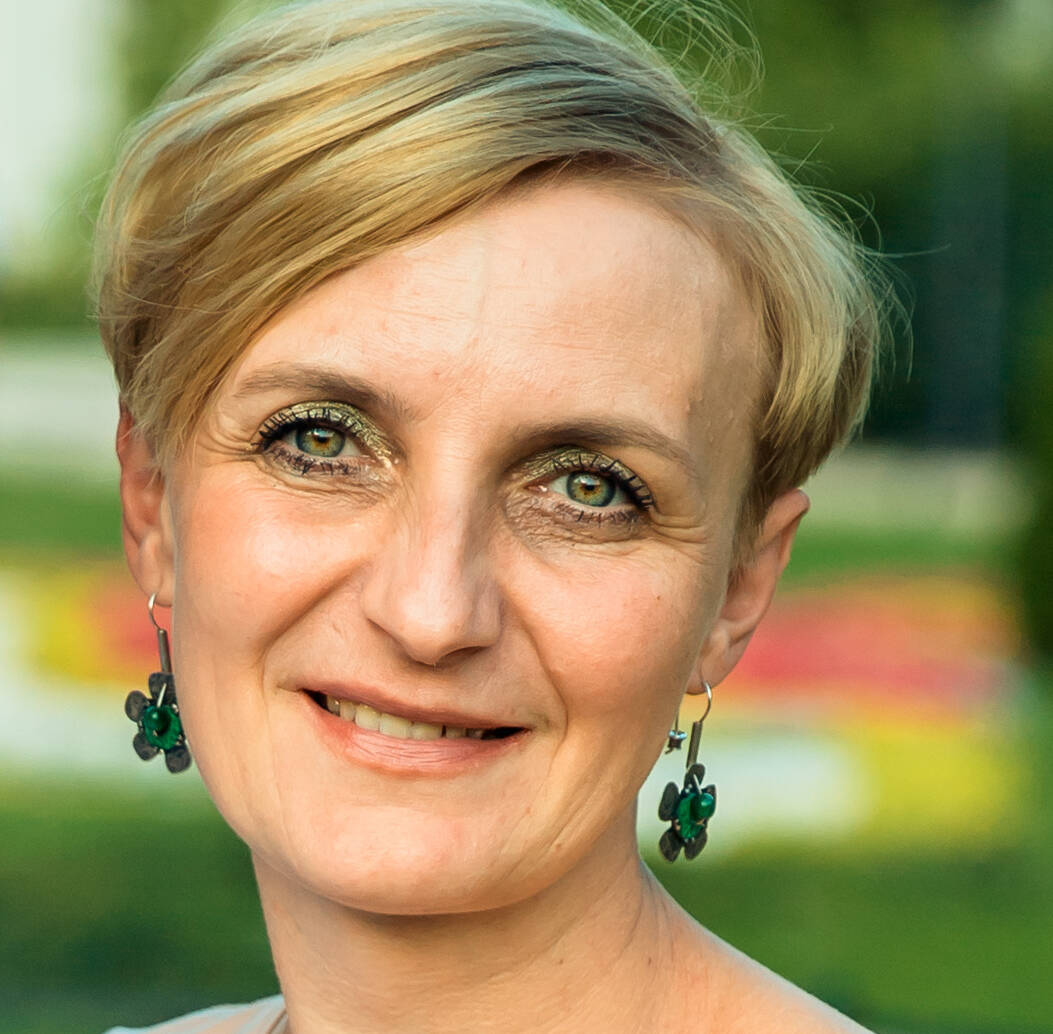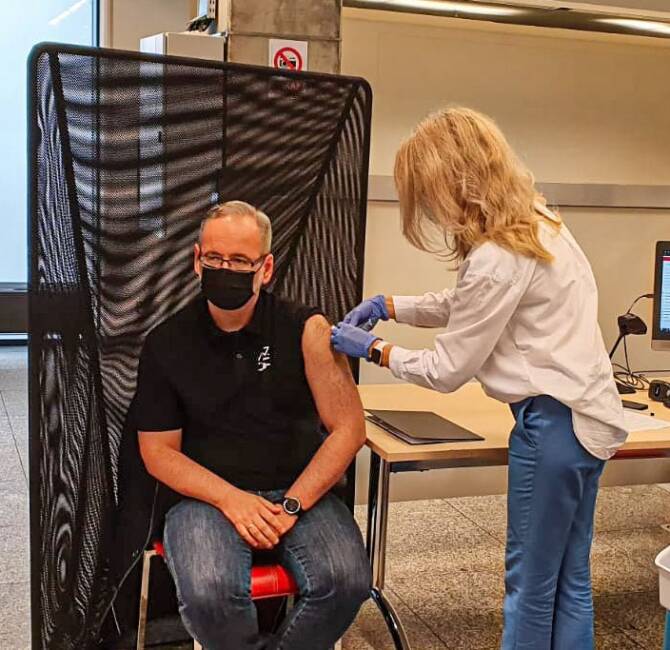Ukraine – In the basement of a building in Kyiv which was temporarily used as an air raid shelter, the image broadcast around the world of a row of transparent maternity cradles where newborns sleep might have looked like a sign of hope symbolising the strength of life in these times of war. And yet the drama of war has affected those newborns in a particularly cruel way, since these are children without parents and without a nationality, as they were born of surrogate mothers just before the beginning of the Russian invasion or in the days that followed. Their foreign genetic and “intended” parents cannot pick them up because their countries’ embassies are closed, and this means that it is no longer possible to obtain the necessary documents to take a child out of Ukraine. Moreover, many would be too afraid anyway to come to a country caught in the turmoil of war.
This place, which was shown in the international media at the beginning of March, had been set up by the Ukrainian company BioTexCom for the forty or so babies present (a number that was increasing every day) and a number of nannies. This company claims to be a “human reproduction centre” and is one of the main surrogacy companies operating in Ukraine. After the closure of many surrogacy centres in Asia, where laws now make surrogacy inaccessible for foreign couples (following several scandals), the industry has moved mainly to Ukraine, but also to Russia and other post-Soviet countries, which have very liberal regulations on commercial surrogacy. In Ukraine in particular, the demand for surrogacy services was very high before the war, and the business flourished. It is estimated that every year Ukrainian surrogate mothers give birth to some 4000 babies. Even if surrogacy services in Ukraine, Russia and Georgia, unlike in the United States, are theoretically only available to married heterosexual couples, and even if there must be a genetic link between the child and at least one of its intended parents, it seems that these limitations are sometimes circumvented. And these services are also offered to citizens of countries where surrogate motherhood is prohibited by law, such as France, where surrogate motherhood performed abroad has nevertheless earned growing recognition under the influence of the courts and with the authorities’ passive collaboration.
As the biggest provider of surrogacy services in Ukraine, BioTexCom openly promotes its services and products in France, including on the mereporteuse.info website, and French clients could easily get the birth certificates of their surrogate-born children transcribed by their country’s embassy in Kyiv. The cost of the procedure in Ukraine ranges from 40,000 to 65,000 euros and is significantly lower than the price of surrogacy in the United States, which ranges from 130,000 to 160,000 dollars, although there the procedure is open to same-sex couples and unmarried people. A surrogate mother in Ukraine receives only 13,000 euros, a large part of which is paid only after the child is handed over to its buyers.
In Western countries, while the war continues to rage in Ukraine, the campaign to publicise surrogacy does not falter – quite the contrary. Mainstream media outlets, most of which profess a liberal progressive ideology, like to talk of the drama of infertility and of how surrogate motherhood is truly altruistic, even when it is done for money. Like at the beginning of the health crisis triggered by Covid, when the collection of surrogate-born infants was prevented by border closures, the genetic or “intended” parents, presented as collateral victims of the war waged by Russia on its Slavic neighbour, are openly demanding intervention by governments to allow them to finalise their transactions, even when surrogacy remains theoretically prohibited in their own country. Nobody, or almost nobody, considers the fate of women who become surrogate mothers for one reason: poverty. No one wants to know what is happening to them, especially now, when Ukrainian cities are under bombardment. No one asks questions about how they cope with their separation from the baby they carried in their womb knowing that its life is now in danger. For Ukrainian surrogate mothers who were carrying a baby in their womb when the hostilities broke out, fleeing to the West to give birth is not an option, as the countries west of Ukraine do not recognise surrogacy and the surrogate mothers would then automatically become the legal mothers of these children, their surrogacy contract becoming null and void.
According to the French conservative organisation La Manif pour Tous, the first victims of surrogacy, which must be considered a form of human trafficking, are women, and in this case Ukrainian women. “Surrogacy exploits and enslaves poor women, who are reduced to their reproductive capacities and treated as sub-humans. Heights of horror are reached with the contempt shown towards the mothers of these children, which goes so far as to pass over in silence their situation, their anguish, their future, they who have remained stuck in Kyiv while waiting to deliver the children to their impatient sponsors”, said a Manif pour Tous press release on 1 March. The organisation’s chairwoman, Ludovine de La Rochère, also said in a statement: “The pain of the Ukrainian people resonates all the more strongly in our hearts as the sordid and inhumane business of surrogacy deeply despises these women. More than ever, we must affirm loud and clear that women’s dignity has no borders and no skin colour. We must help Ukrainian women who are victims of surrogacy and this requires the universal abolition of this infamous practice.”
For its part, the French organisation Juristes pour l’enfance (Jurists for Children), in an 8 March press release, drew the attention of the United Nations Special Rapporteur on the sale and sexual exploitation of children to the rights of children both born and unborn who have been conceived by way of surrogate motherhood throughout the world. They call the practice of surrogacy an international and organised sale of children that exploits “economic inequalities between client and producer countries” and replaces an adoption process that has been made difficult, particularly for married couples composed of a father and a mother, since adoption has been opened to homosexual couples in many Western countries. In fact, in the surrogacy business carried on in Ukraine and elsewhere, the child is only a commodity, which has its price precisely defined depending on its genetic and “intended” parents’ requirements. The price lists even include a VIP category with shorter waiting times for a surrogate mother and a complete set of services and guarantees, for example against foetal anomaly, with even a replacement child promised if the first one dies during his or her first year. In August 2019, the Australian television channel ABC broadcast a report on the fate of children born disabled in Ukraine under surrogacy contracts and abandoned by the buyers like a defective commodity, these children being taken care of by Ukrainian orphanages.
The Catholic bishops of Ukraine have opposed the use of surrogate mothers, asking the government to ban the practice, but with no effect. “It is difficult to imagine the drama of a woman who has to give up her child. The pain of a child taken from his mother and sold to another family under this inhumane contract is also unimaginable”, said Bishop Sviatoslav Shevchuk, primate of the Greek Catholic Church, in May 2020, when the scandal was highlighted by the restrictions on international travel imposed by several governments in the face of the Covid-19 pandemic. This condemnation was also supported by Archbishop Mieczyslaw Mokrzycki, Archbishop of Lviv and President of the country’s Conference of Roman Catholic Bishops. But with just over 4 million Greek Catholics and only a few hundred thousand Roman Catholics in this predominantly Orthodox country of 41 million people, the Catholic bishops’ reach is limited. The request made last year to President Zelensky by a representative of the Protestant Evangelical Churches of Ukraine to ban commercial surrogacy did not have any effect either. Protestants also number only a few hundred thousand (probably about 700,000, like Roman Catholics) in Ukraine, so a strong Orthodox voice is missing from the appeal.
Unfortunately, the tragedy of women and children involved in the process of surrogacy, which has come under the spotlight again because of the war, is still not understood by broader Ukrainian society and did not seem to worry the government even before the war. Ukrainian reproductive centres are not even considering suspending their practices during the ongoing war, while it is estimated that currently more than 500 women in Ukraine are pregnant with children ordered by Europeans, Americans or Chinese. Providers assure their clients that their activities are going on uninterrupted, and in some cases propose surrogate mothers in other countries, such as Russia and Georgia, where the approach to surrogacy is just as liberal as in Ukraine (even if there was a discussion last year in Russia about changing the law) and where the fees charged are similar. On the website of the Ukrainian company BioTexCom, one could read on 19 April: “The clinic is running at full capacity and has not stopped its medical activities for a single day. BioTexCom already has first appointments for potential donors and surrogates in two Ukrainian cities, Kyiv and Kropyvnytskyi! In addition, the centre will be launching new programs in the near future.”




